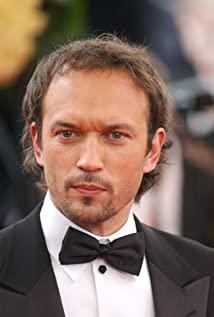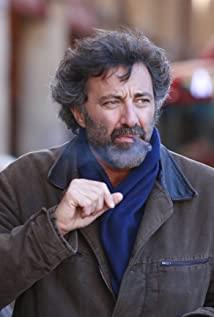Speak up with righteousness and speak up for those who cannot speak. How much is the cost of conscience, and what is the meaning of the truth? After watching this film, you may have a new understanding. This is a story of fighting against power, against the masses, against the world, for an unfamiliar "stranger".
The story of the film takes place in Paris, France at the end of the 19th century. It was the period of Impressionism and the famous "Beautiful Era". Paris attracted the attention of the world. "I accuse" is named after the famous article title of the great French writer Zola, and changed from the novel "An Officer and a Spy" about the wrongful case of Dreyfus.
From any angle, the film is Polanski's return. He is good at depicting the depravity and shadows of human nature. This time it focuses on Dreyfus, a framed Jewish officer, and his struggle against him. Among the French officers Picard, the high-level wrongly accused a loyal officer of treason, dismissed the army and sentenced him to long prison terms because of his own prejudice and dereliction of duty to cover up his power and despicable means. From the beginning of the film, Picard stated that he did not like Jews, but he did not accept slander and deviated from the truth to distort an innocent person, and thus embarked on a self-destructive road to find the truth for Dreyfus. No one was spared.
Many people may not understand why the real spy Estrazi cannot be convicted. Everyone must protect him. After checking the information, they found the details in the real history. One of the noble families, one of whose representatives moved to Paris between 1890 and 1895, Ferdinand Estrazzi was a libertine, a playboy, a player in debt, but also a French Army Artillery Major, Governor of Alsace.
Against such a background, one is a descendant of aristocrats with a golden background, and the other is a diligent and conscientious Jewish officer. The racism and discrimination of that era still reverberates like a ghost in Europe, so those in power chose the pariah and chose The opposite of the so-called "people", he chose to use power to suppress a good person, while letting go of the wicked and even going to the platform to cheer for the wicked. But fortunately in that era, there were intellectuals full of conscience and excellent media people who did not hesitate to self-destruct for the truth. Zola's report was compared by the crazy masses to shouting for the "Jews", and received black money from the "Jewish consortium". Even the death of his wife was inextricably linked to this report. Today, more than 100 years later, it is a very sad thing to see people who are willing to destroy their reputations and even their lives for the sake of truth and conscience.
As a director with Jewish blood, Polanski can easily put himself in the perspective of a vulnerable group's private prosecution to gain more sympathy points, but it is commendable that he did not turn "I Accused" into an anti-indictment The study of Judaism, or another kind of "politically correct" film, which is too easy for him on the one hand, and disdainful on the other hand, that's why we have such a wonderful film, even at the end of the film , Picard lived up to his promise and conscience, put his life and lover, friends at risk, exposed the government's despicable cover-up, and finally rescued Dreyfus from Devil's Island, but Dreyer Foss didn't even say thank you to him, just asked why his eight years in prison didn't count as service (which is really, really good). Dreyfus gained his due reputation, while Picard gained a complete personality. Compared with Picard, his lover's family was destroyed, his friends were killed, and the old leaders in the army and even the entire army regarded him as a traitor. The common people sneered at him, but did not return a "thank you" in the end, just for a person who was not even familiar with him or even disliked him from the bottom of his heart. Maybe we can better understand what prejudice is and what justice is. What, Picard would be a little surprised by Dreyfus' ingratitude, but in the final analysis, he did these things for his own conscience, although the price was too great.
The art in the film truly restores the original appearance of Paris' "Beautiful City" without losing its style. From the furniture and interior furnishings to the details of the doorknob, the filming is very atmospheric, and several group scenes show Polanski's profound director. The skill, the dark cool tone and the non-playing soundtrack provide a strong output for the film's narrative and atmosphere. The actors range from starring Jean Dujardin to supporting role Emmanuel Seigner (Polanski). wife) are all very, very good actors, Matthew Amalric's role as a note appraiser is very brilliant, and every opposing scene is intoxicating.
There is no shortage of "smart" people in this world, even "pragmatic" people. Most people do things for the sake of others. The so-called political correctness is actually just another way of hiding in the group. Cowardice and shouting, discrimination against Jews in those days was "political correctness". Black and white people are the majority of the group in any era, but there are some people who insist on telling the truth and are innocent by those who have been wronged. At this time, there will always be people who use their despicable hearts to speculate about him. , to slander him, to slander him, in the final analysis, because these people can never understand his actions or motives, they can't understand that there are people in this world who can speak up for their conscience, for a person who is not important to them or even does not exist. They do not understand the meaning and value, and sometimes people do things just for their own dignity and honor.
View more about An Officer and a Spy reviews










